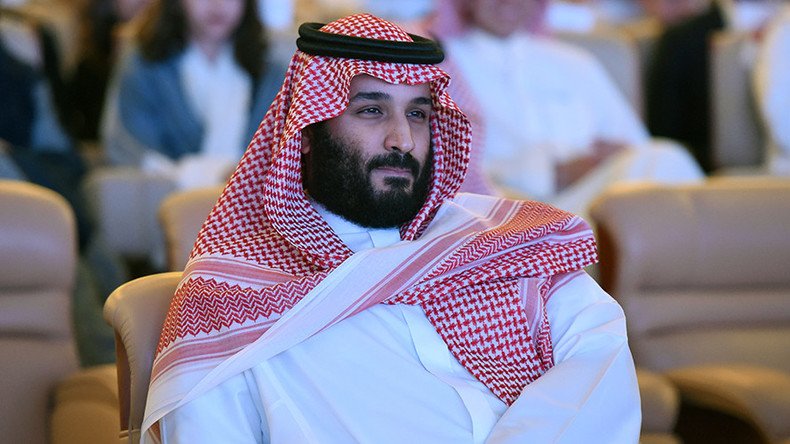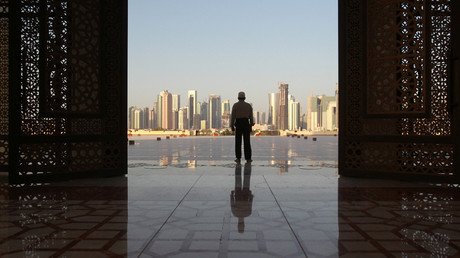Why Saudi Arabia’s crackdown sent oil prices soaring

A power-play by the most powerful man in Saudi Arabia took place over the weekend, with big repercussions for the future of the country that is OPEC’s de factor leader and the world’s second-largest oil producer.
Mohammed bin Salman, Crown Prince and heir to King Salman, was granted control over a wide-ranging anti-corruption committee last week, and immediately used his new power to consolidate his position. Eleven former ministers and dozens of Saudi princes were arrested or detained on charges of corruption, graft or financial malfeasance.
The crackdown by the Crown Prince, who is commonly called “MBS” by the Western media, is largely seen as a move to consolidate power before he assumes the throne later this year or next. It is nevertheless a shocking move by the Saudi royal, one that will have big repercussions on the country’s oil industry.
The short-term outlook was bullish: MBS is seen as a key supporter for the OPEC policy of measured production cuts, and his consolidation of power means the cuts are likely to be maintained and extended through the rest of next year.
Conversely, rising prices may also signal increase instability in Saudi Arabia: there are signs that the crackdown may have been meant to stave off a more substantive challenge to MBS from upper-echelon figures in the Saudi hierarchy. The uncertainty in future Saudi oil policy has created a bull market. While MBS is known to favor an extension of production cuts, the turmoil within the Saudi ruling elite could signal a shift in policy in advance of the November 30 OPEC meeting in Vienna, where an extension to production cuts is expected to dominate the agenda.
Read more on Oilprice.com: 600,000 Bpd At Risk As Venezuela Delays The Inevitable
Early trading Sunday evening was strong, while the Brent price on Monday rose above $62 as WTI edged above $55. That marks a two-year high, with prices returning to levels not seen since July 2015, marking a 40% increase from the lows experienced last June.
Another factor influencing events is the anticipated sale of Saudi Aramco, the state oil company and quite possibly the world’s most valuable company. MBS has championed the move to put part of Aramco up for sale, using the proceeds to fund a massive economic development project known as Vision 2030. He has argued that with “lower for longer” prices in the global oil market and an uncertain future, the Saudi economy must be diversified away from reliance on oil and natural gas production.
Future planning has looked more and more necessary since prices collapsed from their $100 highs in 2014. Since then, Saudi Arabia has struggled with immense budget deficits, a costly war in Yemen (also championed by MBS), and worsening domestic economic conditions. Unemployment has risen and the full effect of the OPEC production cuts, which MBS supported following the removal of Saudi oil minister Ali al-Naimi in 2016, has taken a lot longer to be felt than was initially thought.
The Saudi Aramco IPO needs high prices to be successful, and the IPO is being courted by the United States, with President Donald Trump urging the Saudis to post the offering on the New York Stock Exchange.
The President’s son-in-law and key advisor Jared Kushner took a sudden, unannounced trip to Saudi Arabia, where he reportedly met with MBS for a long, secret meeting.
It’s too soon to tell what these events portend, but the bullishness in oil is likely to remain at least for the next few days, as the fallout from the crackdown and the full effect of MBS’ actions becomes evident.
Read more on Oilprice.com: The Boy Genius Tackling Energy’s Toughest Problem
With prices above $60, there are legitimate concerns that the solidarity among OPEC members may begin to weaken. Higher prices will encourage over-production as OPEC members try to cash in on the bullish market. It’s possible the price, buoyed upwards by temporary factors including spikes in risk and positive rhetoric from Russia and OPEC concerning extensions to production cuts, could remain over-supplied in the near term, sending prices back down.
All this implies that MBS’ power-play over the weekend could be a risky move, both in terms of maintaining the bullish streak in oil prices and cementing his own position within the Saudi hierarchy.
This article was originally published on Oilprice.com














